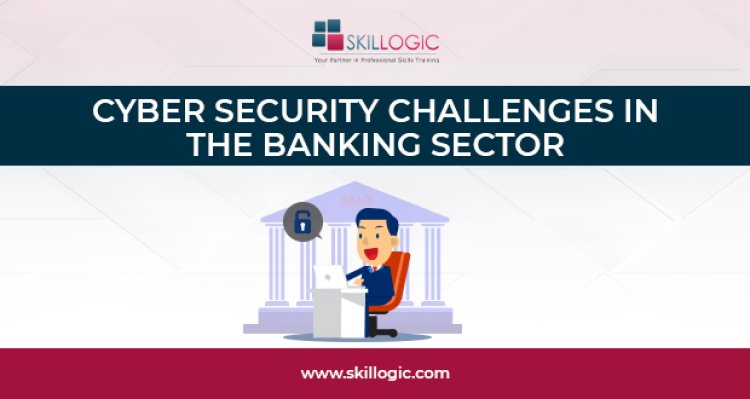Cyber Security Challenges in the Banking Sector

What is Cyber Security?
Cyber security is the operation of safeguarding servers, computers, electronic systems, mobile devices, networks, and data from malicious attacks. The term is applied in a variety of contexts, from business to mobile computing, and can be broken down into a few general categories.
With the cyber threats shooting up, the International Data Corporation predicts that worldwide spending on cyber-security solutions will hit a towering $133.7 billion by 2022. Governments around the world have countered the growing cyber threat with guidance to help. Organizations execute constructive cyber security practices.
Over the past decade, cyber attacks have become so popular in the banking sector that it is now considered one of the biggest threats to the industry. Cybercriminals have evolved in technology – increasing their techniques and skills, making it very difficult for any financial services company to rise above the threat every time. Cyber security is not limited to any industry related to technology. It has significant importance in banking as banks conduct millions of transactions every day, and most of them are done on digital payment platforms. This makes the banking sector the primary target of cyber attackers all over the world.
With the increase in digitization, cyber security threats have also increased significantly. You may have heard recently that billions of dollars are being withdrawn from the biggest financial institutions.
As the world is progressing digitally, it has disclosed an opening wedge for cybercriminals; Therefore, Cyber Security has been in call since the world had taken up digital banking. There has been a breach of data of technically savvy banks.
Did you know?
- 8 out of 10 US citizens dread that their financial information is not protected in the hands of businesses.
- According to the FBI, the amount paid out to ransomware scammers has struck nearly $1 billion per year.
- 92% of ATMs are vulnerable to hacking.
- The price for cyberattacks in the banking industry reached $18.3 million per annum.
Banking customers are moving away from using cash and checks and are more dependent on electronic banking to complete transactions.
As a result, financial organizations continue to come up with more web portals and mobile apps. While these apps and portals pursue to amplify the experience of customers, they pose unique risks in terms of cyber security.
From shortfall in secure data storage to incompetent cryptography, there are countless reasons why online banking portals, as well as banking apps, lead to cyber threats.
- Lack of server security
- Insecure or ineffective data storage
- Data is not secure in the transport layer from server to client and/or from client to server
- Data leak on the user side
- Insufficient authentication and authorization during user log-in
- Insufficient or ineffective encryption
Attackers can sell confidential information stolen from a banking institution for malicious purposes.
Hackers can even aim at individual customers who are part of the organization. This can result in customer identity theft or customer anger.
Inadequate information security compliance would damage the public image of the financial institution.
- Identity theft
- Spoofing
- Insecure Third-Party Services
- Unencrypted data
- Malware
- Phishing
In India, banks have seen frequent attacks from organized criminals and hackers. This was exemplified in a recent case of Canara Bank, where a hacker attacked and sabotaged the bank’s site by putting up a malicious page and trying to block some of the bank’s e-payments.
Another case of cyber security attack in digital banking happened with Union Bank of India where it suffered huge losses. The attackers gained entry using a fake RBI ID and one of the officers fell victim to a phishing e-mail and clicked on a suspicious link that led to malware exploiting the system.
Huge losses were avoided due to effective action on the part of the Union Bank of India. This was possible only because of the prompt response to the incident on the part of the bank.
Winding Up
Despite its weaknesses, the banking industry has a lot of opportunities to improve its cyber security. Financial institutions can emphasize identifying solutions to cyber threats and acquiring new technologies and implementing those solutions on their networks that can provide a faultless banking service.
SKILLOGIC is providing ethical hacking course in bangalore, chennai, pune, hyderabad and mumbai. SKILLOGIC is accredited from EC-Council and IIFIS.

 admin
admin 



